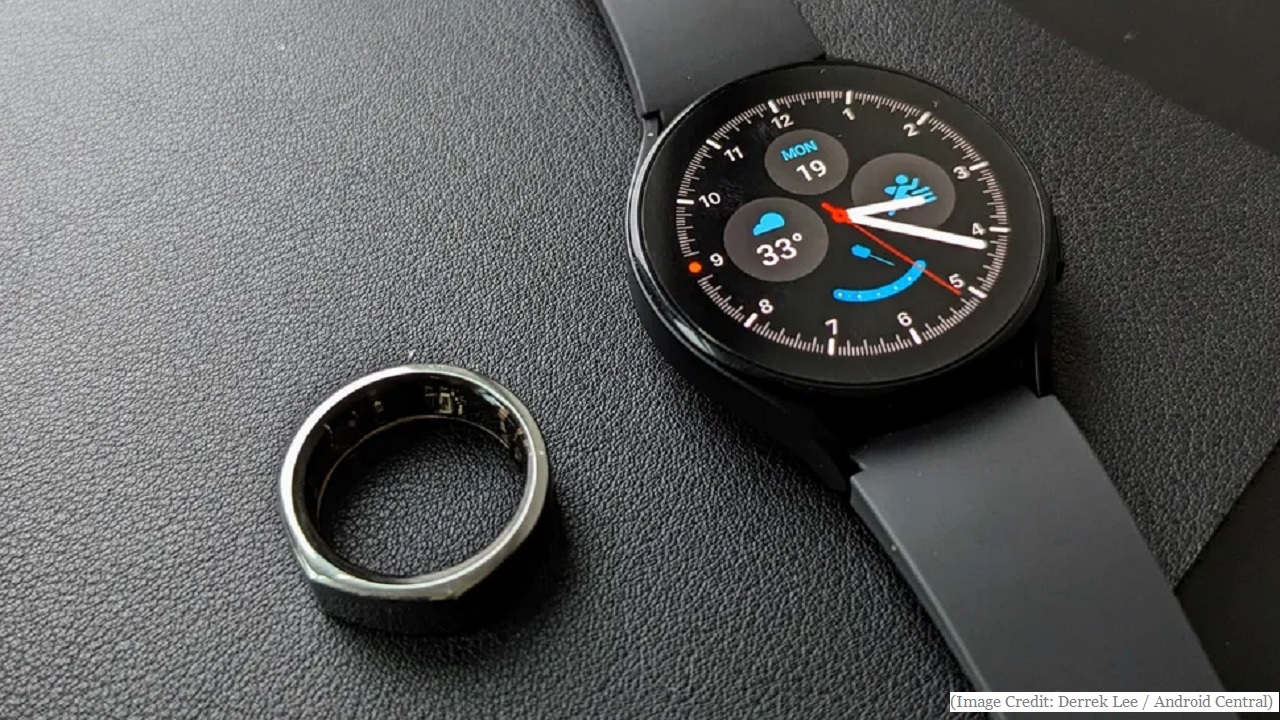Samsung Galaxy Ring
Samsung’s foray into the smart ring market has become a reality, confirmed by a company executive in early February 2024. The aptly named “Galaxy Ring” is set to arrive in the latter half of this year, stirring excitement and curiosity within the tech community. While details remain under wraps, here’s a comprehensive dive into what we know and what potential the Galaxy Ring holds:
Confirmation and Context:
The official confirmation came from Daniel Seung Lee, Senior Vice President and Head of B2B Wearable/IoT/Accessory at Samsung, via a LinkedIn post. This aligns with earlier leaks and speculations suggesting a 2024 launch for the ring. Notably, the Galaxy Wearable app’s code hinted at “connecting to your ring,” further fueling anticipation.
Expected Features and Functionalities:
Specific functionalities are yet to be officially revealed, but based on leaks and industry trends, we can speculate on some potential features:
-
Health and Fitness Tracking: As a health-focused wearable, the Galaxy Ring is likely to track steps, distance, calories burned, and sleep patterns. Advanced sensors could track heart rate, ECG (electrocardiogram), and blood oxygen levels, providing deeper insights into overall health.
- Stress Management: Stress monitoring capabilities are becoming increasingly popular in wearables, and the Galaxy Ring might follow suit. This could involve measuring heart rate variability, skin conductance, and other parameters to assess stress levels and suggest techniques for relaxation.
- Activity Recognition: Automatic recognition of activities like walking, running, cycling, and swimming would be a valuable addition, offering a more comprehensive picture of daily activity.
- Sleep Tracking: Advanced sleep tracking capabilities, including sleep stages, quality, and REM sleep analysis, could help users understand their sleep patterns and improve sleep hygiene.
- Smart Assistant Integration: Integration with Samsung’s Bixby assistant or Google Assistant would allow for voice commands and interactions with the ring.
- Payments: Contactless payments through platforms like Samsung Pay could be a convenient addition.
- Customization: Different sizes and finishes to cater to varying preferences would enhance personalization.
Integration with Samsung Ecosystem:
A key area of interest lies in the potential integration with Samsung’s existing ecosystem. Seamless pairing with Galaxy smartphones, tablets, and smartwatches could create a unified health and fitness experience. Data sharing between devices could provide a more holistic view of wellness and potentially unlock unique features.
Competition and Market Impact:
The smart ring market is already populated with players like Oura Ring, Motiv Ring, and McLear. The Galaxy Ring will need to offer compelling features and seamless integration within the Samsung ecosystem to carve out its niche. However, Samsung’s brand recognition and existing user base could put it in a strong position to become a major contender.
Open Questions and What to Expect:
While the confirmation is exciting, several questions remain unanswered:
- Specific features and functionalities: What sensors will be included? What health metrics will it track? Will it offer advanced features like blood oxygen monitoring or stress assessments?
- Design and comfort: Will it be lightweight and comfortable for all-day wear? What size options will be available?
- Battery life: How long will it last on a single charge?
- Pricing and availability: What will it cost? Where and when will it be available?
- Integration with Samsung ecosystem: How deeply will it integrate with other Samsung devices and services?
Samsung is likely to reveal more details in the coming months. Stay tuned for further updates and official announcements as the Galaxy Ring inches closer to its H2 2024 release.
Related Story: Samsung Galaxy S24 Ultra
Future Possibilities of Samsung Galaxy Ring
While this article has focused on the currently available information, it’s worth looking beyond the immediate and considering the potential the Galaxy Ring holds:
- Biometric authentication: The ring could be used for secure authentication on phones, computers, and smart home devices.
- Chronic disease management: Integration with healthcare platforms could enable continuous monitoring and management of chronic conditions like diabetes or heart disease.
- Advanced data analysis: Personalized insights and recommendations based on health data could offer a more proactive approach to wellness.
With the arrival of the Galaxy Ring is a big deal in the world of wearable tech. Galaxy Ring’s success depends on how amazing its features are, how well it works with other devices, and how easy it is to use. As we learn more about it, everyone in the tech world is curious to see if it’s as good as they say and if yes then it’ll change the way we use wearable’s.

